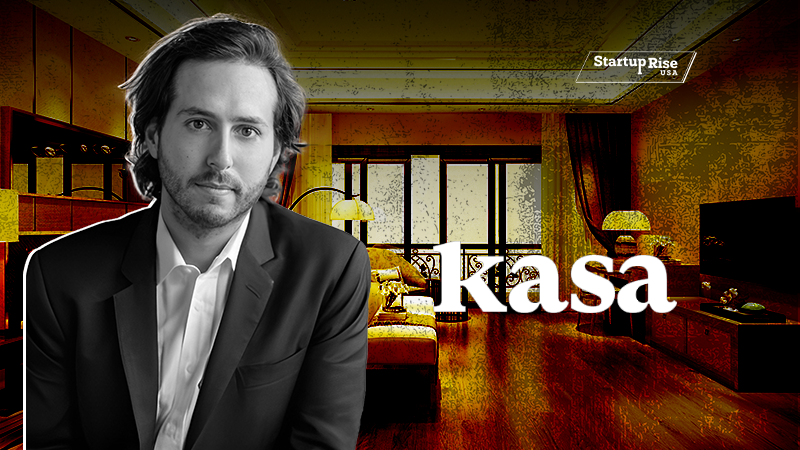
The Man Behind the Vision: Roman Pedan’s Journey Into Hospitality
Every successful startup starts with a question that’s burning to be answered. For Roman Pedan, founder of rental startup Kasa Living, that question was: why does hospitality feel so broken?
Roman, who went to Stanford and worked in real estate and private equity, spent years observing the inefficiencies in hotels and inconsistencies in short-term rentals. The hotels were corporate, costly, and analog. Rentals backed by companies like Airbnb often promised “home-like stays,” but guests found themselves living with uncertainty, without services, and with zero trust.
He saw an opportunity to reimagine hospitality from scratch: to design a system in which technology was not a stand-in, but a mediator, between hospitality and convenience. In 2016, that concept became Kasa — a startup that was rethinking what it means to be away from home.
A New Category of Stay: Kasa as the Smart, Seamless, and Stylish Alternative
From the start, Kasa staked out a position as something that couldn’t be pigeonholed. It was not just a hotel chain nor was it another rental marketplace. Instead, it turned into something else entirely: a tech- enabled hospitality brand.
Kasa books are for more than just a bed for the night. They align in apartments and boutique hotel rooms designed with modern travelers in mind. It’s a 100% virtual check-in, smart locks access, and they have 24/7 support.
No front desk lines, no random rental hosts, no Fyrefest! What Kasa provides is consistency, reliability, and comfort — the three things travelers prize most but seldom get in the same place.
Intelligence at the Core: Technology That Powers Human-Centric Stays
Though the guest experience is warm and frictionless, Kasa’s real magic lies in its robust systems humming away behind the curtain.
Central to its business is an AI-powered platform that coordinates everything from guest communications to housekeeping schedules, safety checks, and pricing optimization. This intelligence enables Kasa to expand without the high costs associated with traditional hotels.
And the magic of Kasa is that the guest never sees the complexity — they experience the ease. The stay is intuitive, and it’s human, for them. For landlords and property management companies, it’s a streamlined and lucrative process.
From Startup Roots to National Expansion: How Kasa Is Transforming American Hospitality
What began as a radical San Francisco experiment is now rolling out across the country. Today, Kasa operates in more than 85 buildings in 40 major US cities and has hosted more than a million room nights.
The magnitude of this effect is mindboggling. Independent owners with whom we partner are driving meaningful increases in revenue and operating margins. Travellers, though, can have stressless stays in some of the prime locations. Cities, too, profit from more intelligent hospitality infrastructure that fits the needs of the modern world.
Launched just a few years ago, Kasa has quickly moved from a scrappy startup to a well known upstart in the US hotel scene.
Constructing Tomorrow’s Hospitality: Trust, Technology and Complete Freedom
Kasa’s philosophy has been clear from the start: technology should make travel more simple, not more complicated. That belief permeates every aspect of the guest journey.
Virtual check-ins replace long lines. Safety and convenience are the things you want to get out of your keyless entries. With 24/7 guest support, guests will always feel like they have a friend to take care of them, regardless of the time of day. With everything from high speed Wi-Fi to work-friendly setups, Kasa is the perfect stay for digital nomads and business nomads alike.
The objective is straightforward: to provide each traveler with the freedom to feel at home, even when they are far from it.
A Smarter Model: Why Kasa Thrives Where Others Struggle
Start-ups in the hospitality space have come and gone for years, many crushed by heavy leases and delicate economics. But Kasa took a different route.
Without investing in its own real estate, it created an asset-light, revenue-sharing model that shares Kasa’s tech platform with boutique operators and independent property owners. This agility allows the company to ramp up fast without the danger of overspending.
It’s a model not built to endure — but to thrive.
Backed by Big Believers: The Investors Fueling Kasa’s Vision
Strong people attract other strong people and Kasa is no exception. Recently the company raised $40 million to expand its AI powered hospitality platform.
With these funds, Kasa will have the opportunity to further develop its operating system, enhance personalization for its guests, and establish a network in new cities. Most importantly, it’s a vote of confidence from investors who see Kasa as the future of hospitality.
Building Trust in a Digital Age: Technology That Feels Human
The danger of technology in hospitality is that it can be inhuman. But Kasa has always maintained that digital should not be impersonal.
Each time a guest interacts with us, be it via text message, call, or email, it is handled with kindness and warmth. Kasa makes sure that travelers are not only getting answers, but that they feel reassured, understood, and cared for.
The ability to connect the pace of technology with the soul of human interaction is what makes Kasa unique.
The Legacy of Kasa: A World Where Every Stay Feels Like Home
For future travelers, when they look back, they will not recall the intricacies of the algorithms or the structures of the revenue sharing models. They’ll remember Kasa as a feeling of ease and comfort.
From the start, Roman Pedan’s mission was far more than simply climbing roofs- it was about reinventing hospitality for a digital tomorrow. Kasa’s approach – to build technology supportive of human connections instead of submissive to them. This proves that the future of travel can be fast, reliable and comfortable.
The legacy of Kasa is potent but straightforward: a world where everyone stays, regardless of city, feels like home.



